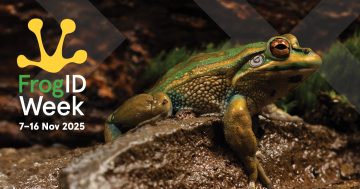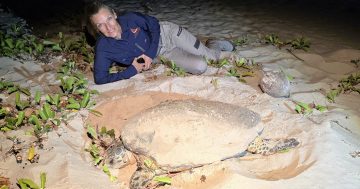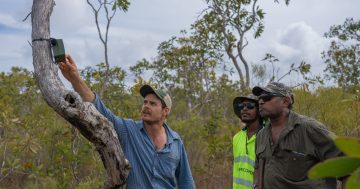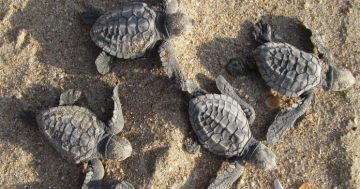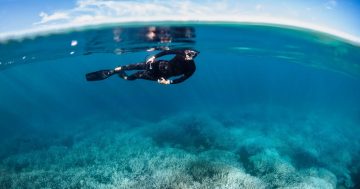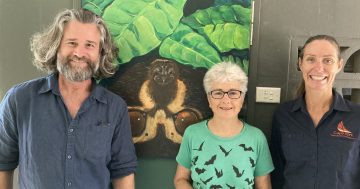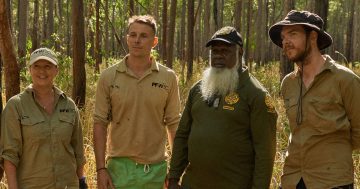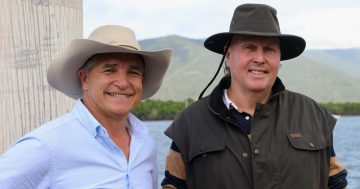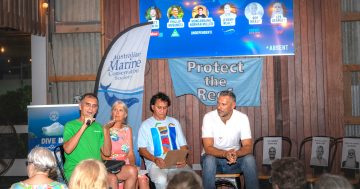
Frogs species of Wujal Wujal need the community’s help in identifying them for conservation. Photo: Australian Museum.
With just a simple click on a smartphone, Wujal Wujal residents can be the first in the region to submit data for the nation’s biggest citizen scientist project.
Led by the Australian Museum for the seventh year in a row, FrogID Week has gathered 1.1 million frog records from everyday Australians, contributing to the discovery of eight new species, the rediscovery of species thought to be extinct, and research on the effects of changing climates and extreme weather events.
This year, with no records from Wujal Wujal ever collected during the project, the community is a top priority for new findings.
All residents need to do is download the free FrogID app, and submit audio recordings of any frogs they hear by 17 November.
“Wujal Wujal is a very special place – it’s a lot of beautiful habitats and a lot of fantastic rainforest,” Australian Museum scientific officer Dr Gracie Liu said.
“We don’t have any FrogID recordings from the region, but there are potentially 30 or maybe even more species of frogs in the area, which is why we’re really keen to get some recordings.
“One of the main aims of our project is to increase the spatial coverage of our record, because there’s a lot of areas that we have no data on, and without data, we can’t even begin to protect them and conserve them.”
Dr Liu said they also welcomed entries from all other parts of Cape York, adding that the biodiversity of the region meant it was home to many frog species.
“It’s a really great way to learn about what frogs you have on your property; a lot of land owners have given feedback to us saying they previously weren’t aware of what frogs were on their property, and they found out that they’ve got a whole handful of species,” she said.
“It helps connect people to nature, and it helps connect people with the environment, and I think that’s a really special thing.”


